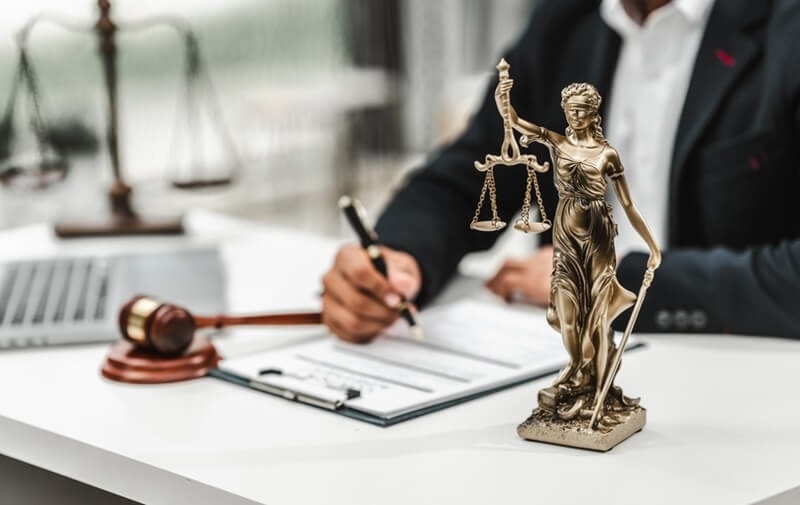
We all understand our general freedoms, yet many ordinary legal rights fall through the cracks in our daily lives. From handling workplace rules, consumer agreements, landlord-tenant disputes, or even private lives, people lose chances to invoke the safeguards they are entitled to. Gaining legal awareness and enhancing the consciousness of rights shields you and secures you equitable treatment in matters impacting your everyday life.
In this guide, we'll reveal the neglected rights that could make a real difference when you learn how to utilize them.
Knowing your daily rights is not about memorizing statutes—it's about empowerment. Most arguments, from petty consumer complaints to significant employment disputes, occur because individuals aren't aware of the legal recourse they already possess. For example, tenants will pay for fixes their landlord is responsible for, or workers will accept unfair compensation practices because they do not know current labor laws.
Through increased legal knowledge, you acquire the potential to handle such situations confidently. Awareness of rights also keeps you from being exploited, minimizes stress, and enables you to make good decisions.

Here are some of the most common rights that you may not know you possess:
Contracts are binding under law, but several individuals are compelled to sign hastily without reading. You always have the right to read, make changes, or consult a lawyer before signing any contract. This extends to rental, work, service, and loan contracts.
American labor laws mandate employers to create a safe workplace free from known hazards. If you are unsafe, you should report it without fear of being retaliated against. Most employees overlook this, thinking hazardous working conditions are "part of the job."
Under HIPAA, patients are entitled to receive and read their medical records. This often-neglected right provides complete transparency into your healthcare, diagnoses, and treatment plans.
If the products are defective, you can claim a refund or repair, even if the store doesn't advertise it. Consumer protection laws protect consumers from unscrupulous practices, yet many don't utilize such guarantees.
In the digital era, your own information is worth something. You have rights under statutes such as the Fair Credit Reporting Act (FCRA) to understand who is looking at your financial history, and state-by-state protections for information online.
According to the law, most renters don't know that landlords must provide habitable living spaces, such as warmth, water, and safe buildings. Tenants also have rights when it comes to security deposits and eviction procedures.
Most states allow employees to take time off from work to vote without loss of compensation. However, millions of workers miss elections because they don't know this is an option.
Workplaces are among the most prevalent places where daily rights are violated. Some of the most important ones are:
Knowing these daily rights prevents you not getting ripped off at work, and your employer abides by labor laws.
Consumers are shielded from deceptive or misleading advertising. You might be eligible for compensation or refunds in case of product misrepresentation.
Did you know that you have a "cooling-off" period when you sign certain contracts, like door-to-door sales contracts? This period entitles you to cancel without penalty.
You are entitled to contest false information on your credit record and to be told if you're turned down for credit because of your credit history.
These neglected rights shield you against unequal treatment in money and consumer issues.
Developing your legal knowledge doesn't mean becoming an attorney—it means knowing the rules that govern you. Basic awareness can safeguard you in such fields as:
Knowing your rights will make you less likely to be exploited and more likely to assert yourself when confronted.
It doesn't take years of schooling to build rights awareness. Simple actions include:
When individuals fail to claim their rights, it usually results in unnecessary financial loss, health consequences, or mental distress. For instance:
This ignored right is recognized and claimed to avoid exploitation and ensure fair play in society.
Knowing your rights is just the first step - it is important to act on them. You can do this by keeping personal copies of anything that is related to your contract, receipts, or a log of communications, because, for the most part, documentation is the best way to protect yourself and your common legal rights. If you find that someone has violated your everyday rights, do not hesitate to file a complaint with the government agency that governs that action, or call someone for legal assistance, and do not forget that many communities have free or low-cost legal aid services where someone can help you understand and assert your overlooked rights without coming at full cost. By taking daily actions to protect yourself, not only do you protect yourself, but you also create a standard that will limit people from doing unfair things in workplaces, communities, and in daily living.
Although we associate laws with courtroom cases and legal wars, we often forget that laws protect us daily. Our everyday legal rights are often disregarded or rejected, leading to wrong treatment at work, in the marketplace, or in our everyday lives. By improving your legal knowledge and amplifying your awareness of rights, you are not only protecting yourself but also acquiring a culture of fairness and responsibility.
Never underestimate the power of knowing your rights—it's one of the strongest tools to create a safe, fair, and empowered life.
This content was created by AI